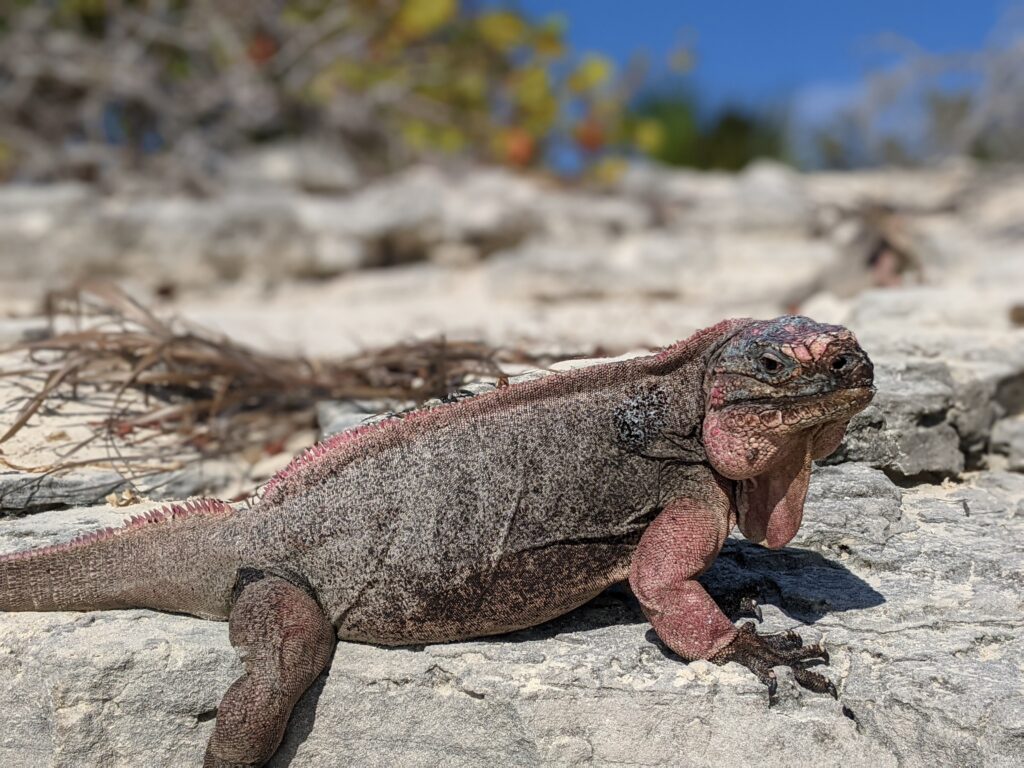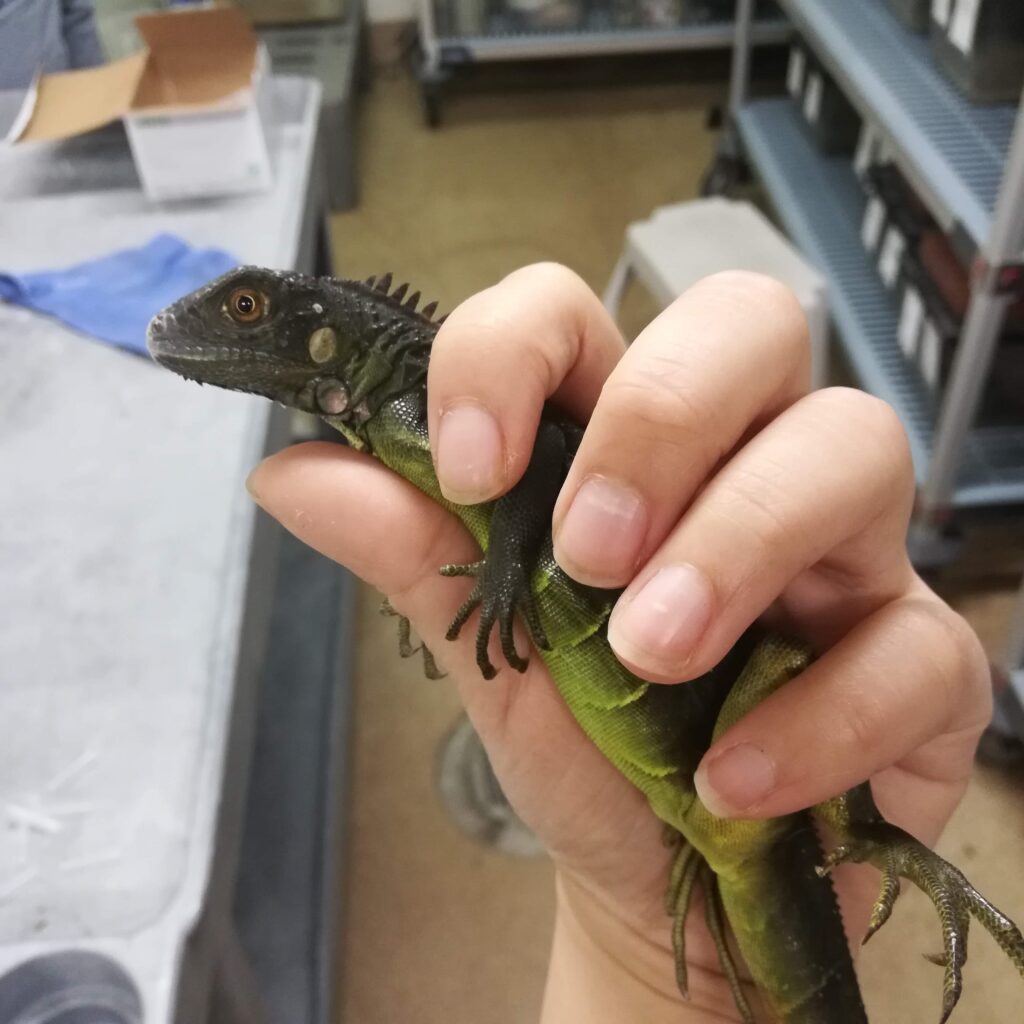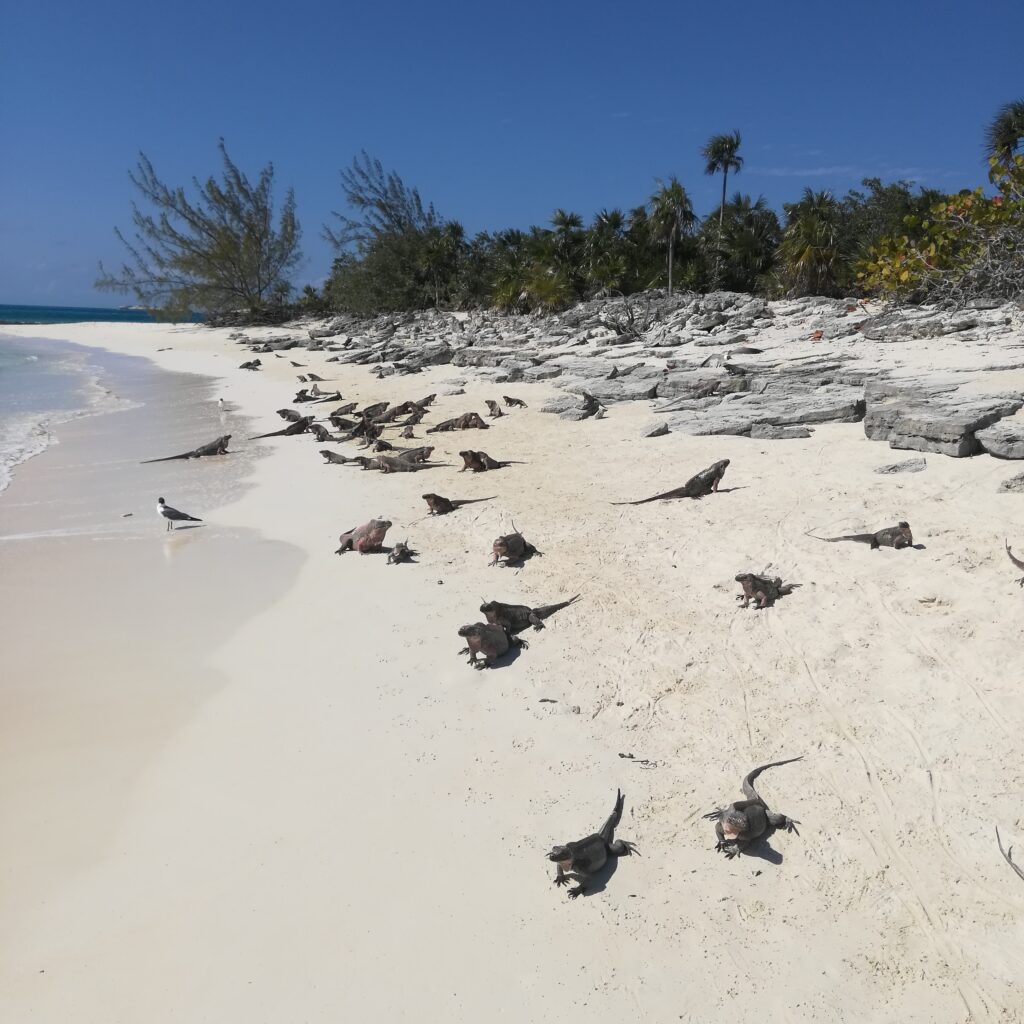The rock iguanas in the Bahamas are delighted when they hear the sound of the speedboats filled with grape-laden tourists landing on the beaches. An essential part of the tourist experience is to feed the iguanas, so these endangered reptiles that once ran away from humans are now running towards them to gobble up the sweet grapes. Although rock iguanas are a protected species, they continue to face multiple threats from habitat loss, illegal hunting, and non-native predators like pigs and dogs. The latest addition to these threats is the high sugar diet fed by ecotourists.

It is well-known that feeding foods that are not native to the environment of an animal can cause changes in digestion and behavioral patterns, while potentially having a negative impact on health. “As an eco-immunologist, I am very interested in how the environment can affect the immune system. The effects of diet on iguanas are particularly interesting to me because it is such a relevant question, especially with some of the effects we see in humans of dietary added sugar such as links to diabetes, cancer, cardiovascular disease” says Claudia Kwanho Ki, a doctoral student in Dr. Susannah French’s lab at Utah State University, who is studying the impact of the grape-induced high sugar diet on the immune response of iguanas.
As a part of ongoing collaboration with the Shedd Aquarium in Chicago, Ki was able to visit the Bahamas and see these iguanas for herself. She lived on a boat and traveled from cay to cay to catch and monitor the Bahamian Iguanas. She noticed that unlike the grape-fed iguanas, the populations not visited by tourists would run away as the scientists approached.
Because rock iguanas are endangered and limited in number, Ki and her collaborators substituted the more common and readily available green iguanas for their study. Green iguanas are herbivorous just like rock iguanas, and do not consume a lot of sugar in their natural diet, making them an ideal comparison.

To understand the effects of sugar on the iguana immune response, Ki and her collaborators fed one group a healthy, low sugar control diet and the other group an elevated sugar diet that was similar to the grape diet fed by the ecotourists. An immune response has two primary functions: to isolate and then eliminate the pathogen. So, Ki first collected blood samples from the two groups of iguanas to test how well the body recognizes and disables the pathogen. Surprisingly, she found that iguanas that received a high sugar diet were better able to isolate pathogens than the control group.
However, for the immune system to work effectively, it must also eliminate the pathogen. So, Ki performed a bacterial killing assay to determine whether immune cells in the blood are able to kill a laboratory strain of bacteria. The bacteria killing ability of sugar-fed iguanas was 1.5X lower than the control iguanas that received the low sugar diet. Even though the immune system of the sugar-fed iguanas better isolated the pathogens, their immune system was less effective in eliminating them. These findings show that sugar can affect the two components of immunity (isolation and elimination) in different ways and that high sugar diets have a negative impact on how well the immune system can neutralize or eliminate pathogens.

So, are these high sugar group iguanas showing early signs of diabetes? The researchers caution that diabetes is a disease not known to occur in iguanas; therefore, sugar-fed iguanas cannot be termed diabetic. However, findings from this study can provide insights to gain a better understanding of the human diabetes disease while also helping to save these endangered reptiles.
This NSF funded project is done in collaboration with Dr. Karen Kapheim (PI, Utah State university), Dale DeNardo (PI, Arizona State University), Erin Lewis (PhD Candidate, Utah State university) and Elizabeth Wu (Undergraduate student, Arizona State University).
Want to know more about the research at the French lab? Head over to this site: https://frenchlab.weebly.com/
Author Bio:
 Saraswathy Vaidyanathan is a PhD candidate at the University of Massachusetts Lowell. Working in Dr. Natalie Steinel’s lab, she conducts research in the fields of comparative immunology and eco-immunology. Her dissertation research is focused on characterizing the splenic cellular architecture and adaptive immune response kinetics of the threespine stickleback fish. Outside the lab, she enjoys travelling and reading fiction.
Saraswathy Vaidyanathan is a PhD candidate at the University of Massachusetts Lowell. Working in Dr. Natalie Steinel’s lab, she conducts research in the fields of comparative immunology and eco-immunology. Her dissertation research is focused on characterizing the splenic cellular architecture and adaptive immune response kinetics of the threespine stickleback fish. Outside the lab, she enjoys travelling and reading fiction.

